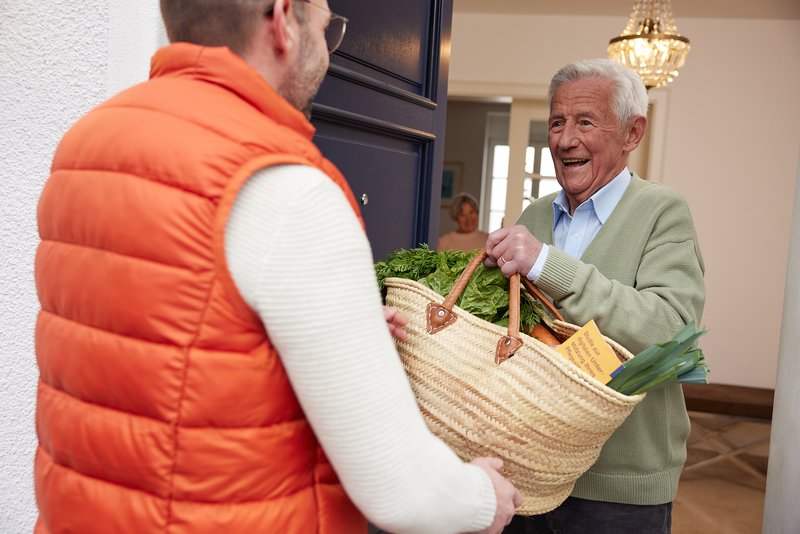
Implementation and engagement-promoting potential of a digital solution for providing assistance to older people
Period: August 2023 – October 2024
Background
Access to informal support services by local volunteers in the neighbourhood is an increasingly important prerequisite for ageing and care in domestic settings. At the same time, volunteers nowadays often wish to time their help flexibly and to organise activities in line with their own wishes and needs (Geiselhart & Wörle, 2022).
Organisations that match volunteers with older people in need of support expect digital solutions to offer benefits such as more efficient coordination and more precise matching between individual offers and requests for help.
This is what findings currently indicate. At the same time, however, they also recognise the continued importance of non-technological aspects in the provision of help, for example in the form of intensive, personal support in the support relationship (Wörle & Geiselhart, 2022).
However, to date there has been a lack of practical studies to analyse the conditions critical to the success of implementing digital solutions in this specific area of application, both in terms of the process and in situ, and thus generate in-depth knowledge relevant to the real world.
Aim and research question
The aim of the project is to scientifically support the implementation of a digital solution that helps provide assistance throughout the entire process. On the one hand, the focus is on the question of the influential factors that are critical to success and the conditions for success. On the other, the project also examines possible effects on local volunteering, such as the recruitment and retention of volunteers.
Methodology
The project examines these questions using the example of a rural community in southern Bavaria, where a local authority arrangements centre is attempting to digitalise the coordination of offers and requests for help by introducing the HILVER app solution. The implementation process is being scientifically monitored by the BZPD in the form of a focused ethnography. Participatory observations will accompany the process. At the outset, during and after implementation, agents in the local authority administration and arrangements centre, volunteers and older people seeking help in situ will also be surveyed using guided interviews.
Target group
The results of the project are not only aimed at an expert audience, but also at active practitioners in civil society and local politics and administration.
Literature
- Wörle, T., Geiselhart, J., Haushammer, C. & Bernhard, D. (2023). Digitale Plattformen zur Vermittlung informell Helfender für die häusliche Pflege: Welchen Nutzen sehen Anbieter?. Zeitschrift für Gerontologie und Geriatrie, 56(8), 630–635. Link to article
- Geiselhart, J., & Wörle, T. (2022). Freiwilliges Engagement im Kontext von Pflege und Digitalisierung: Aktuelle Befunde, Trends und Forschungsperspektiven. Link to article
Publications
Deisenhofer, K., Wenzel, B., Wörle, T., & Geiselhart, J. (2024). Empowering Older Adult Care through Participatory Digital Solutions: A Case Study of Community Implementation. https://doi.org/10.18420/MUC2024-MCI-WS03-168
Deisenhofer, K., Wörle, T., Wenzel, B., & Geiselhart, J. (2024). New ways of aid coordination: Results of an implementation study on the digitalization of neighborhood assistance for the older adults. Gerontechnology, 23(2), 1. https://doi.org/10.4017/gt.2024.23.s.1064.opp
Deisenhofer, K., Geisehart, J. & Wöhrle, T. (2025). Studie: „IPot – Implementierung und engagementfördernde Potenziale einer digitalen Lösung zur
Hilfevermittlung an Ältere“ (Final Report).


